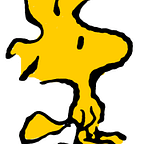Please, Please Don’t Remake ‘Vertigo’
Whatever you might think about the merits of the Marvel Cinematic Universe, the appeal of John Wick, Chantal Akerman’s place on the Sight & Sound greatest films poll, or the chattering class’s HBO hive mind (how do they decide White Lotus is the show to watch? Was there a Twitter poll?), it seems clear we live in a time when there is more great cinema and television to watch than anyone has time for. The gulf between the work that even film-literate types are aware of and the blink-and-you-missed-them indie release schedules has gotten ever wider. During the 1980s and ’90s, the complaint that ushered in so much American indie filmmaking was that Hollywood was only making garbage. Hollywood still makes a lot of garbage. But the show business machinery is still producing and releasing David Lowery, Kelly Reichardt, and Todd Field movies so things are far from dire.
Why, then, in this time of plenty, does anybody need to remake Alfred Hitchcock’s Vertigo? It was recently reported that Paramount Pictures had acquired the rights to a new version being scripted by Steven Knight and produced by Robert Downey Jr., who would also play the James Stewart role. It seems safe to assume they will not be following the Gus Van Sant route (though utterly unnecessary, Van Sant’s 1998 shot-for-shot remake of Psycho had a gutsy iconoclasm that made it more an art installation than piece of cinema). Given that, everything else is up for grabs.
Theoretically, a new Vertigo from this team could be worthwhile. Knight has his share of misses (the derivative Burnt, the lugubrious Spencer) but can also deliver a crackerjack story with resonant characters (Locke, still the best Tom Hardy performance out there). It’s been a minute since Downey tried any real acting — his digressions from the MCU like The Judge and Due Date leaned heavily on a safe kind of smarm — but when he takes a risk (Wonder Boys, A Scanner Darkly) it usually pays off. Then again, Downey already played an obsessive San Franciscan trapped by a darkening gyre of madness in Zodiac.
The real question, though, is not whether a new Vertigo would have value but why make it? Hitchcock was not precious about remakes: He directed two versions of The Man Who Knew Too Much and for good reason: the 1956 version with James Stewart is far superior to the 1934 original. But whereas those films were entertaining variations on a sturdy potboiler plot, Vertigo was something different.
The rare popular and critical failure in Hitchcock’s smashingly popular mid-century run (starting with Spellbound and Notorious in the mid-1940s and concluding with 1963’s The Birds), Vertigo was received with confusion on its 1958 release. A psychologically tangled curio that flirted with mystery and romance, it could not be slotted into any commercially identifiable category. The circular story followed the spiraling mania of Scottie, a cop-turned-private eye (Stewart) whose earlier trauma from guilt over another officer’s death is compounded by an obsession with the apparent suicide of a beautiful woman (Kim Novak) he was tracking for a client.
Like some noirs of the period, the film played with perceptions of truth and used unreliable narration to goose the plot. Unusually, though, Vertigo never quite filled in the holes punched in the story by Scottie’s frenzied mental state. The jangled Saul Bass credits, Bernard Hermann’s haunting score, campy-creepy representations of Scottie’s encroaching madness, and the ghostly San Francisco locations created a mesmerizing and frequently off-putting sensation. The resolution, such as it was, was no more satisfying than waking up from a nightmare.
In the years that followed, the Cahiers du Cinema-fueled cult of Hitchcock grew and imitators like Brian De Palma spread (obsessing over a film about obsession), even as Vertigo became harder to see. When put back into release in 1983, though, the film finally received its critical and popular due. Since then, it has been a regular fixture on greatest-film lists.
Vertigo did not achieve this longevity through being the kind of story that could be spun and reformatted, ala The Man Who Knew Too Much. It was singular, strange, frustrating, and ephemeral; knock one element out and the whole thing comes apart. Its underlying themes certainly have staying power. The concept of the Vertigo-style obsessing detective has already been drawn into enough other films — which amplified different aspects of the original, from Mulholland Drive’s emphasis on the fragility of identity to Basic Instinct’s kink fixations and Decision to Leave’s take on the unknowable femme fatale—they form their own mini-genre.
Enough already. The only reason for an artist to remake an earlier work is if they think they can improve on it. Since art is inherently subjective an artist could always find something they think could be made better. But is this the best use of anybody’s time and effort? Rather than remaking Vertigo or other canonical works from the greatest-hits lists (Margot Robbie’s Persona, Chris Evans’ The Searchers), wouldn’t it be better for filmmakers to look through all the unproduced screenplays sitting in their inboxes?
Who knows? By looking for the new rather than repackaging the old they could end up making something better than Vertigo.
It could happen.
